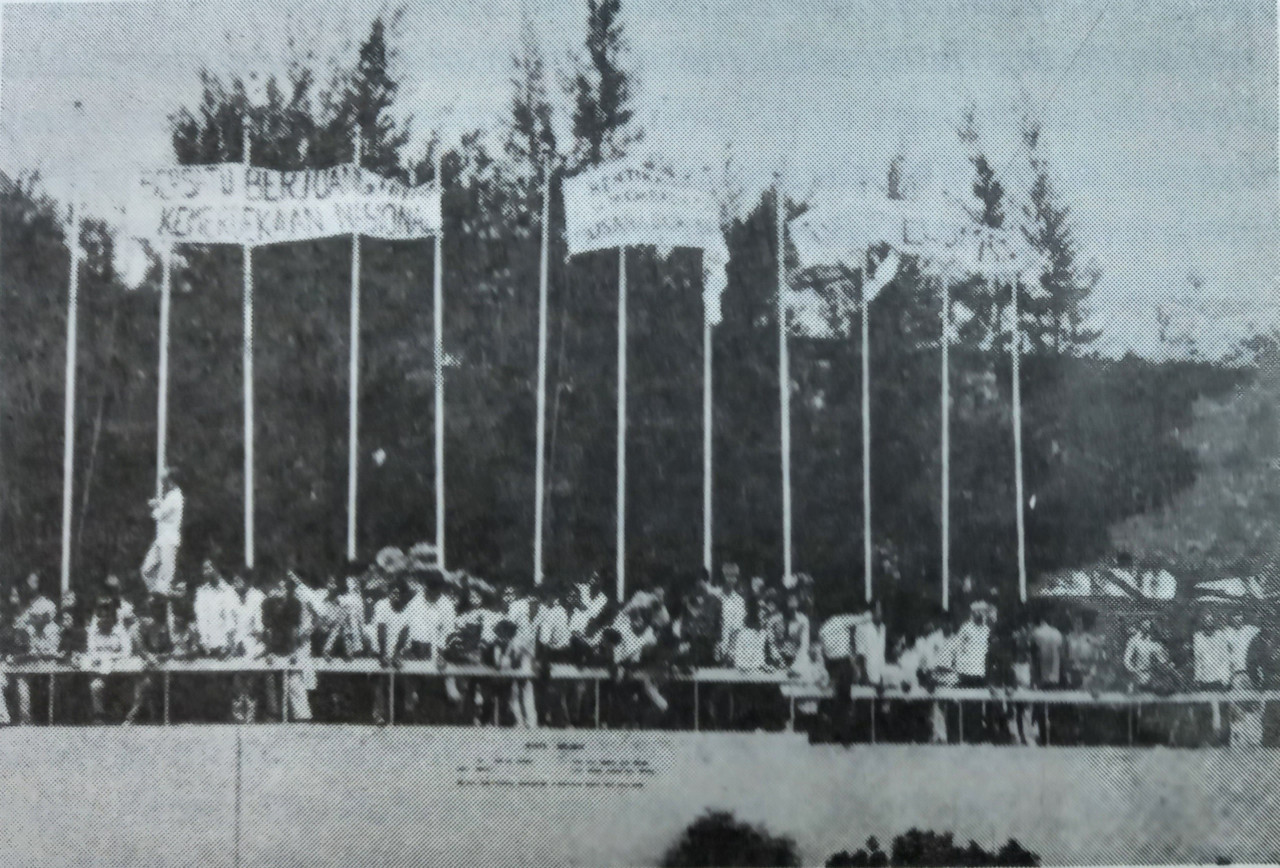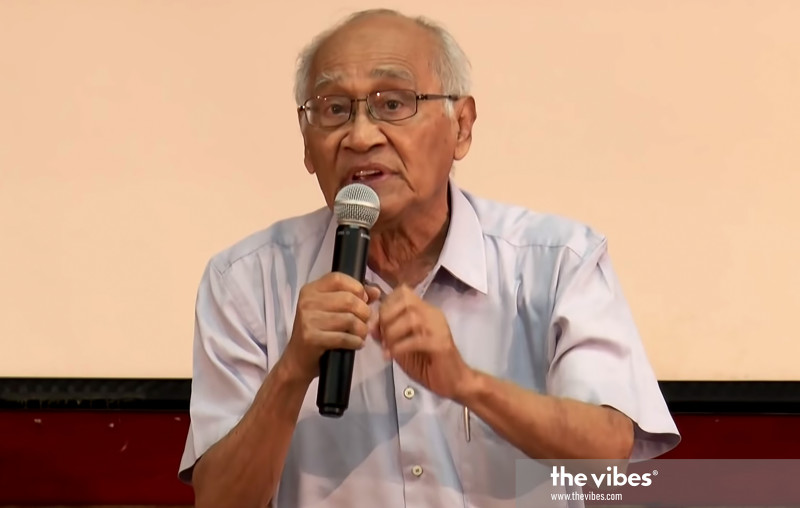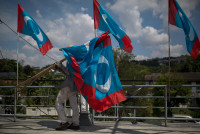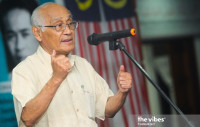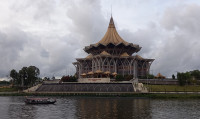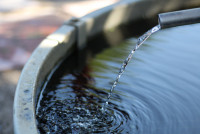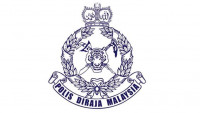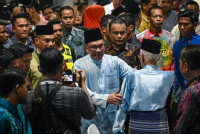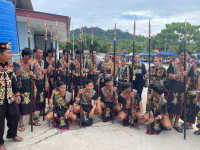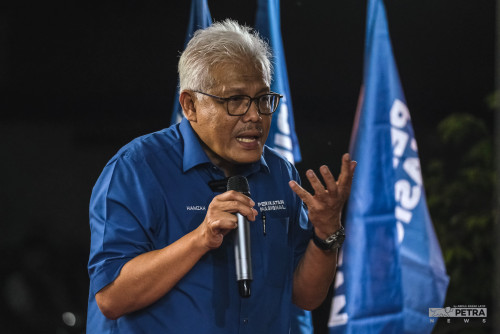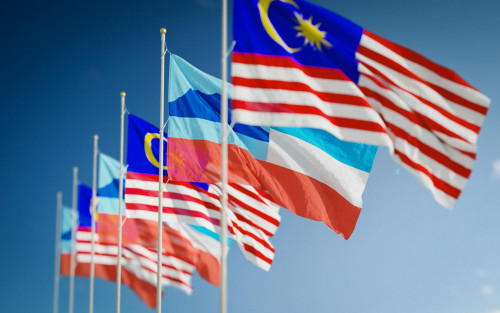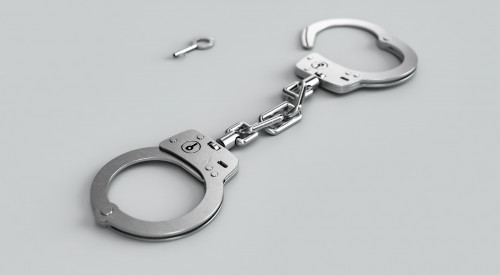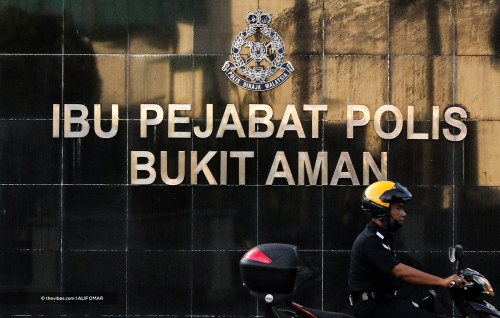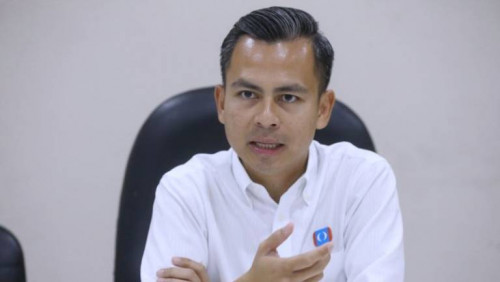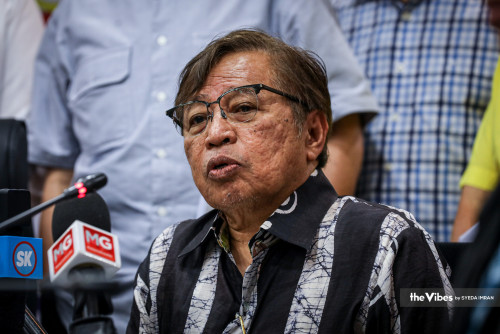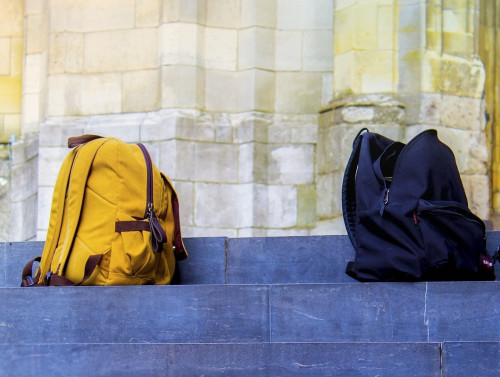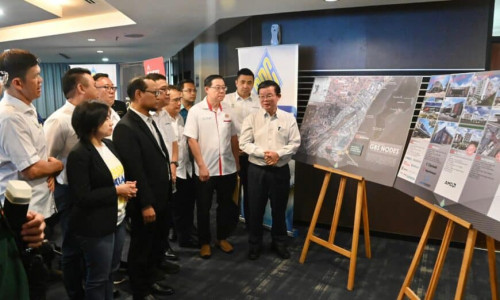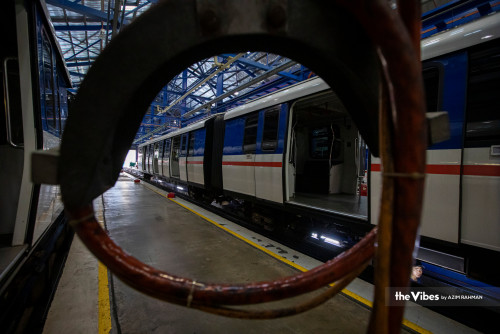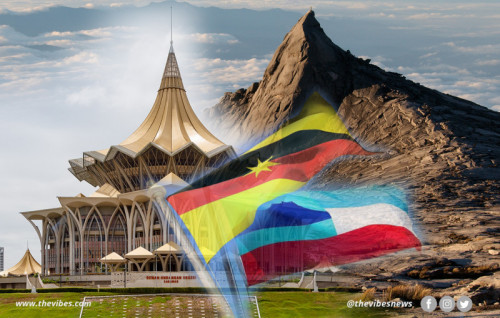IN this second part of his comprehensive interview with The Vibes, veteran politician Syed Husin Ali speaks about his student days, being locked up with the man who went on to become the PKR president, the need to bring to light what has been left in the shadows of history, the celebration and preservation of cultures, and many things in between.
Early friendship with M.K. Rajakumar
Winy: You mention that you met Rajakumar at university. Was it while you were teaching or while you were a student?
Syed Husin: While I was a student. And the first time I saw him during freshie period, I was his junior by two or three years. He participated in a debate. I can’t remember what the topic was, and I attended the debate and saw him speak, and I was impressed by him. He was not a fiery speaker at all, but very, very rational and logical, and very impressive in that sense.
So, after that, I went to a function that was organised by the Socialist Club of which he was then president, and that was when I was introduced to him. And after that, of course, we came in contact because of the university, but not that often. When he graduated and worked in Melaka, I used to pass by Melaka on my road trip around the country with Abdullah Majid, and we normally met by the seaside and talked for hours. And then, he was transferred to Kuala Lumpur.
In Kuala Lumpur, he stayed at the San Peng flats (aka Samseng flats). Agoes (Salim), Kassim Ahmad and I were staying in PJ, and all of a sudden, Kassim Ahmad decided to marry a girl he met in a bookshop that he frequented. Agoes and I said: “We have to move out of this house.” And that night, we shifted to Ungku Omar’s house. Ungku Omar was a good friend of Rajen (Rajakumar), perhaps even Rajen’s best friend, maybe. They were at the medical faculty together.
We slept for one night, and we were discussing: “Where shall we go now? Rajen is staying alone at the San Peng flats. Let’s go there.” He was, at that time, doing his primary (medical service), and we got the key from Sukumari (Rajakumar’s sister), and just came in and parked ourselves.
We became very close, not only discussing and reading together, but we were also involved in politics. He was in the Labour Party, I was in Parti Rakyat, and Agoes was working with the government. Abdullah Majid came off and on. He was an activist. We became very, very close despite being in different parties, but with the same ideology. In fact, we discussed so much that our ideas converged. We had Singaporeans coming – Poh Soo Kai and Lim Hock Siew came over and stayed also in the Samseng flats.
During the period of Konfrontasi (Confrontation), the Labour front lost a lot of their seats because the ruling government used that to instil fear. Yes, they used that and accused us of being collaborators with Sukarno, with the Indonesian Communist Party, and with Konfrontasi. We lost badly, and ended up just having two seats – Lim Kean Siew and V. David. In fact, it was the communist bogey again.
They said in Indonesia, Sukarno was being used by the communists, and that PKI (Partai Komunis Indonesia) was beginning to take power.
Winy: Was that when the government decided to control the media?
Syed Husin: Ya, in fact, they controlled the media, and then they controlled the judiciary. They controlled the police, and finally, they controlled all the institutions that can justify all their corruption and autocratic moves. Now, in a way, we are worse off.
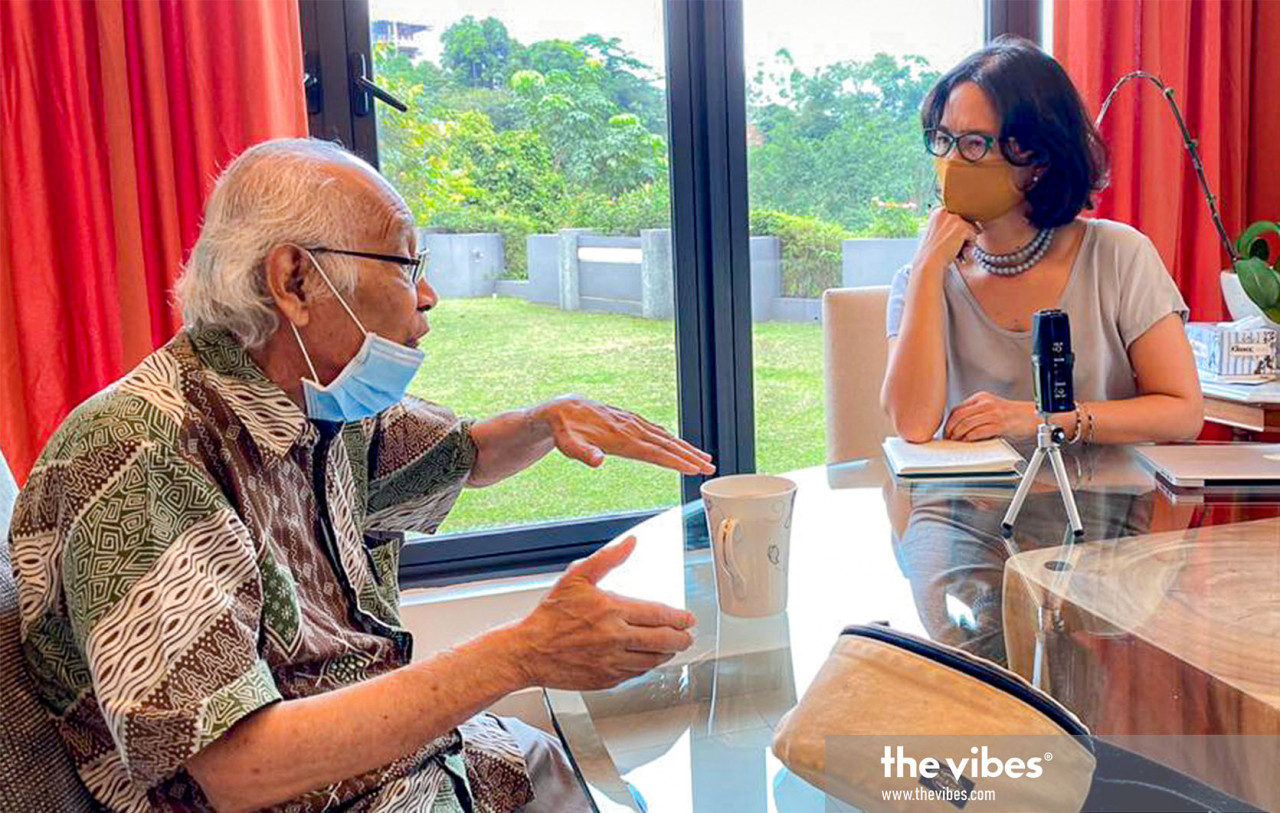
In prison with Anwar Ibrahim
Winy: In your book, you spoke about your detention, and (Datuk Seri) Anwar (Ibrahim) was also detained with you. Was that for the Baling protest?
Syed Husin: Yes, it was for the Baling protest (in Kuala Lumpur). We were in the same lock-up in Jalan Bandar. You see, I was detained two days earlier than him. He went to the police station with Gurdial Singh to get us released, but they were detained instead. He was put in the cell together with criminals for a few days, and then shifted to a solitary cell in Jalan Bandar. I was in one cell and he was at the other end, and we managed to meet when we went to the bathroom.
Whenever I passed his cell, I would shout his name. And then, we were together in Kamunting (Prison). We were together first in the same compound. But, they observed that we were always talking together at night, and they thought we were discussing politics when we were having ideological discussions. So, they separated us into separate compounds.
We started planting vegetables, and when it was bearing fruits, or it was time for harvesting, they destroyed all the vegetables and plants. That’s what they did all the time to demoralise us.
Winy: Did you all share the same philosophy with Anwar?
Syed Husin: Of course, he was more Islamic in his political orientation, but we have strong commonness, especially in our concerns for the Baling peasants who were in poverty. Until now, he has always been concerned about poverty and the poor. It started even in those days, during our student days. In that sense, we had great commonness. Of course, there are other issues that we were concerned about together – on democracy, on justice, and even on common issues relating to students and education. There are a lot of things in common.
Highlighting alternative elements of history
Winy: In your book A People’s History of Malaysia, you mentioned that history is always presented by the victors. Much of history, especially the trading history of the past in this region, is lost, and much of the culture and tradition is also being forgotten. What are your thoughts on the legacies being eroded? How can we preserve part of it, if at all? Is it worth it?
Syed Husin: Well, we have to consider if there are things worth preserving, we should preserve them. Language is one thing we should preserve. That’s why, although I believe in the role of the national language, and Malay as the national language, I also believe that the mother tongue should not be destroyed. They should have the right to their mother tongue.
In terms of culture, let’s take, for instance, an aspect of the arts, let’s say, song and dance. We are actually inheritors of rich civilisations. The Chinese civilisation, the Indian civilisation, the Indonesian civilisation, the Islamic civilisation. Even our foods, in a sense, are influenced by all these civilisations. What more the dances and songs?
For me, it is very important that all these cultures be preserved as part of our own culture. There is no reason to suppress any culture of the minority or majority in order to uphold just one dominant “music” in that sense. In other words, we should be celebrating the wealth of our civilisation or heritage. And, that’s the reason why we should encourage the positive aspects of culture and history.
But, there is also, at the same time, (the fact) that our history has been marred by colonialism and slavery, and all kind of negative traditions. That, I think, would have to go – and the other part of history is the history of the elite. Hardly anything is written from the alternative perspective.
I mentioned just now Ahmad Boestamam, Ishak Haji Muhammad and Dr Burhanuddin (al-Helmi). They were the forerunners of the nationalist movement. But, there is little (of this) mentioned in the official history or schoolbooks. Although now they have improved a bit because we have been criticising that they should give some space for the alternative fighters for independence, which they slowly are beginning to do. I hope they will do better, but still, as you have noted, the story of the alternative has not really been told fully, which has to be told.
I have a group called People’s History Centre. I am the chair. Poh Soo Kai is also a member, and we try to produce books. Poh Soo Kai has written something on Singapore (Living in a Time of Deception, 2016), which gives the alternative to Lee Kuan Yew’s history. I have written my book, just a small print for the time being, and we are working on several other issues.
We have books on the labour movement, Asahan estate workers. The workers were fighting for their rights, and they marched from Asahan to Kuala Lumpur to show their protest and submit their memorandum. We have written a book on their movement and a few other things besides my own books. These are what we hope are the beginnings of an effort to write on the alternative history, the people’s history.
Most of the museums, even in Melaka, only represent the colonial and post-colonial from the perspective of Malay colonial and Malay-Muslims. And even the Malay-Muslim history is skewed. My argument is that the history of the country is not just the peninsula, it is not just Malay-Muslim. It includes non-Muslims and non-Malays, too. And, Sabah and Sarawak are still almost neglected, and we should, now, after so many years, be including Sabah and Sarawak in our history.
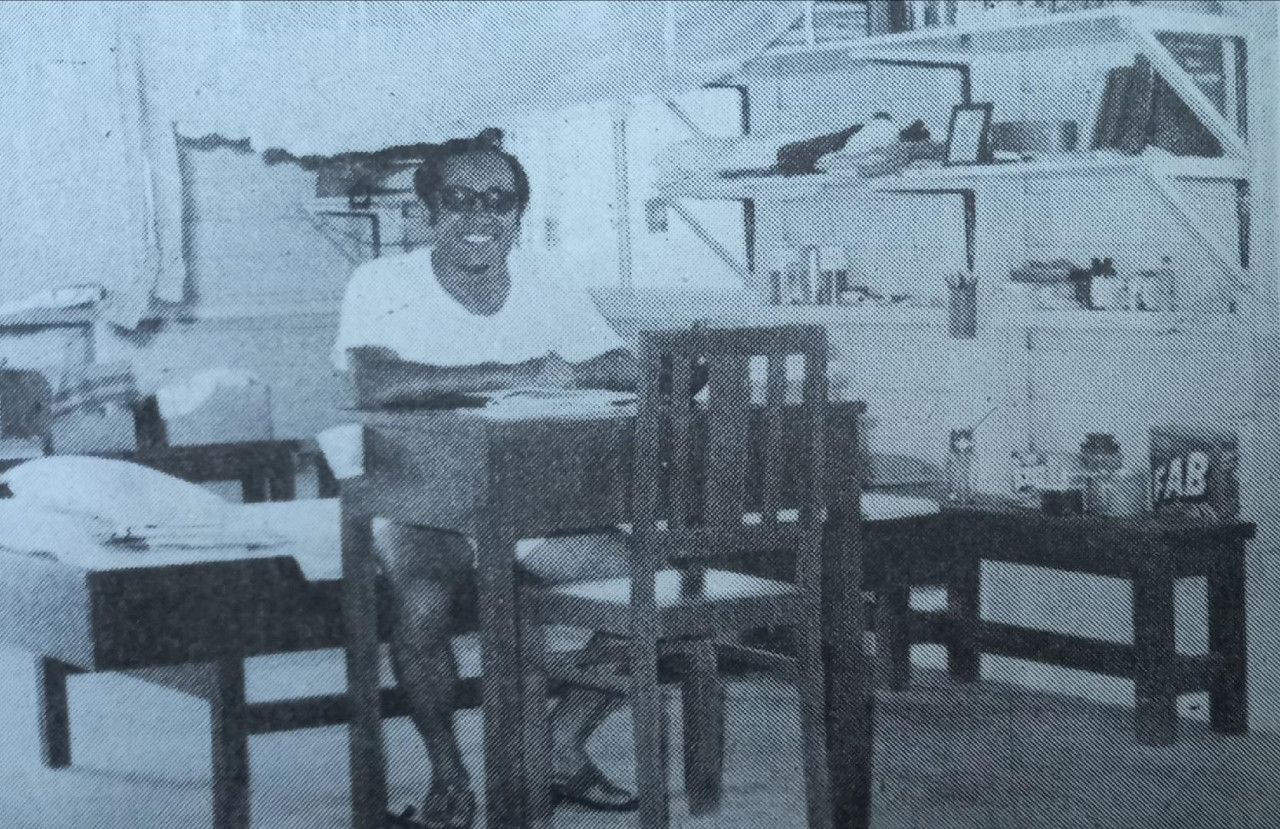
Winy: Any regrets in life, for the things you’ve done, for things you’ve fought for, the positions you’ve taken?
Syed Husin: I don’t think so, I see positive things from my detention. The people would have thought that six years of detention, I would have gone out of everything, but it strengthened my conviction and what I fought for. People have asked me: “Hey, how did you last so long? How did you manage to survive?” I said: “Three things – my wife, because she was very supportive, my political conviction and my religion.” So, these three things actually were the strong pillars that kept me alive and further strengthened me when I was released.
When I was released, I became more active in politics. But it was already steps behind because the Labour (Party), Socialist Front lost out completely. Well, as I said, they closed their shutters. Hundreds of them were detained. So, it was not worthwhile for them to remain a legal party with officers. So, they closed their shutters and mobilised themselves, some among the peasants, in the countryside, while others went into the jungle to continue their fight. That was the Labour Party.
Parti Rakyat decided to go on, because the Malays at that time were not that politically fully conscious yet. So, we went on with Parti Rakyat, and it was very hard for us to expand because we kept on being accused of being communist, being left, and being godless. And then, Kassim Ahmad, the president of Parti Rakyat, he wrote a poem with a line saying that “God is dead”. And that has to be taken in the context of the whole poem. (Tun) Dr Mahathir (Mohamad) was the one who used that line in order to condemn him and Parti Rakyat, as well as the socialist movement.
Struggle over nation’s constitution
Winy: When they proposed the Malayan Union (1946) as a basis of the constitution, there were objections, and the People’s Constitution was presented – and that was sidelined by the authorities and they came up with the Reid/Malayan Constitution (1957). What are your thoughts on the People’s Constitution and Malayan Constitution?
Syed Husin: There is a book on the People’s Constitution and the Putera-AMCJA. The Putera (Pusat Tenaga Ra’ayat) consisted of about 60 Malay groups and parties. The AMCJA (All Malaya Joint Council for Action) was mainly non-Malay, and they merged to form Putera-AMCJA (1947).
Putera-AMCJA produced the People’s Constitution because at that time, there was a commission to set up the constitution for Malaya. They produced a 70-page document to submit to them. They (commission) never recognised it; they accepted it, but never replied to the letter by Putera-AMCJA on the submission of this constitution.
So, they went around the country and campaigned for this People’s Constitution. And then, of course, the government set up another committee to have the Federation of Malay Constitution, and on the committee there were three representatives from the rulers, three from the British, and two from Umno. Nobody else, and they produced a constitution that was the Declaration of Malaya Constitution. They did not accept any view from anyone else – just those three. So, you can imagine, with the rulers and the British and Umno, how they drafted the constitution.
Winy: Your role as a senator in Parliament – how difficult is it to change the constitution to make it a more progressive article?
Syed Husin: Very difficult, because we always have a minority. In the Dewan Rakyat, we were a minority, and in the Dewan Negara – the Senate – out of 70 (seats), 26 represent the state (two for each state), and the rest are all appointed by the ruling party. Umno always had more than 60 out of the 70, and we cannot change much.
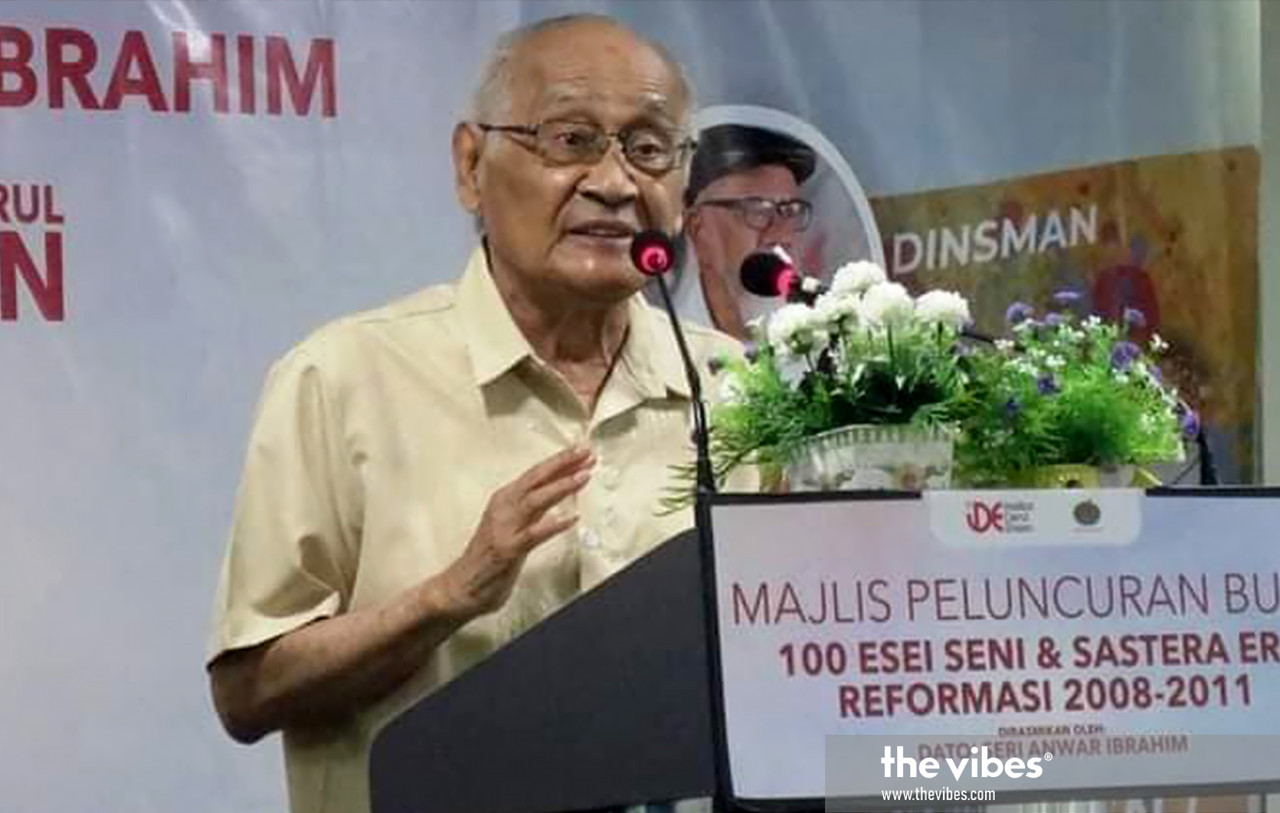
Winy: If you could, what would you change?
Syed Husin: I haven’t thought of this matter... I don’t think the constitution is very clear on the creation of the Malaysian nation, and how that should link up with the various institutions, like education and administration. So, I think there is a need for that. And, it is not very clear also regarding ways and means to improve the lot of the poor, the welfare of the poor. So, I think these two things are very important.
And in terms of democracy – they should put more democratic openings, particularly for the non-Malay-Muslim. The constitution is very biased on Malays and Muslims in the peninsula, and that should not be the case. Look at the US – (Barack) Obama with Indonesian and Kenyan backgrounds can become president, Kamala Harris, of Indian descent, is now the vice-president-elect, the new mayor in California, Jocelyn Yow, is a 25-year-old of Malaysian-Vietnamese parentage.
Can you imagine in Penang or any part of Malaysia, where a non-Malay girl at the age of 25 can be elected mayor? Cannot imagine. Now, where can you have a menteri besar who may be Chinese or Indian, and born and bred here? Now, Kamala, she is a second-generation (American). And the reason why we don’t have it in Malaysia is, I think, our constitution doesn’t really allow for it. Or it may allow for it, but the practice is different.
The Malays are the majority, they shouldn’t be the ones who feel oppressed or endangered. Dr Mahathir, (Datuk Seri) Najib (Razak), (Tan Sri) Muhyiddin (Yassin), (Datuk Seri Abdul) Hadi (Awang) and all that are using race and religion. The socialist movement is almost dead in this country. If it is social capitalism, it is okay, and then, you have democratic socialism in Sweden and Norway, where the welfare of the people is looked after, but cannot make money. – The Vibes, January 3, 2021
Read Pt 1 of the interview here.
Datin Dr Winy Sekhar is chairman of the Vinod Sekhar Foundation
